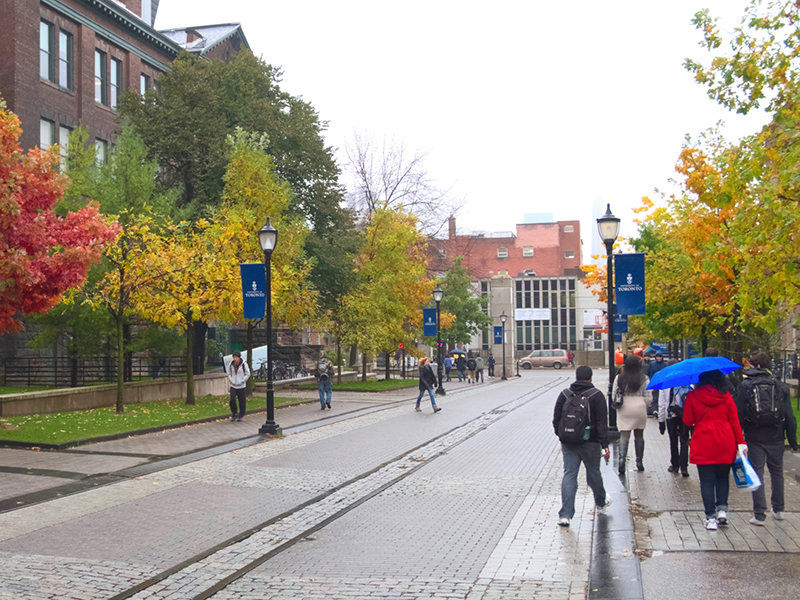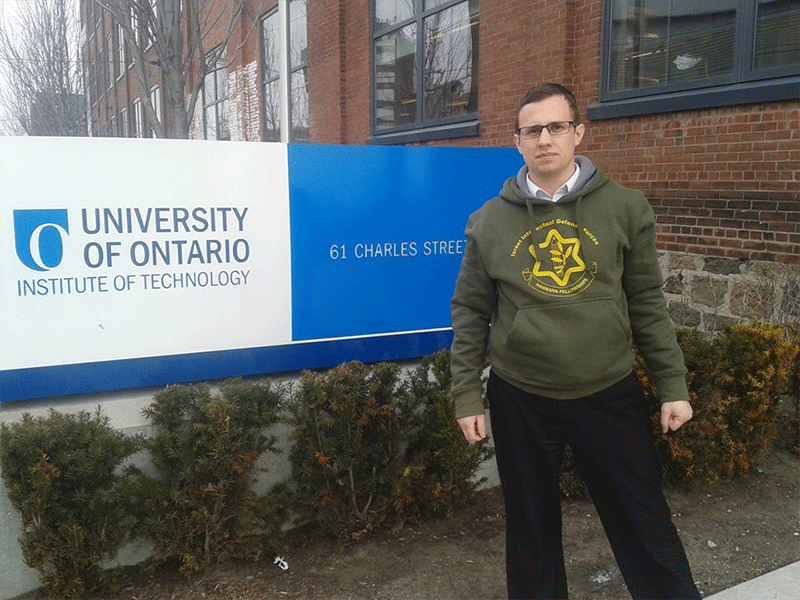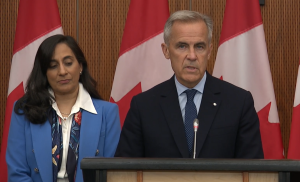The University of Toronto says that one of its professors was not being discriminatory when he rebuffed a student for belonging to an Israel advocacy group.
Jens Hanssen, a tenured professor of Arab civilization and Mediterranean and Middle Eastern history at U of T, did not discriminate on the basis of religion or nationality, when he snubbed graduate student and former CJN intern Ari Blaff because Blaff was a Hasbara fellow, the university said.
Last December, Blaff, at the time a grad student at U of T’s Munk School of Global Affairs, emailed Hanssen hoping to talk to him about his interest in Mideast history and academia, in pursuit of a PhD.
Blaff did not say in his brief note to the professor that he had been a Hasbara fellow a few years earlier, while earning his master’s degree at Western University. Yet in a scathing reply, Hanssen noted that Blaff was a Hasbara fellow who is “instructed to conflate Judaism and Zionism,” and is “encouraged to give the impression” that criticizing Israel constitutes anti-Semitism.
Hanssen told Blaff that “Israeli Hasbara organizations such as yours” pose a “grave threat” to “academic freedom and the intellectual independence of the university.”
Hanssen also accused Blaff of “slander” arising from an article Blaff had written on an Israeli-Palestinian dialogue at the university last year.
READ: THE ANTI-ISRAEL LEFT’S CAMPUS STRONGHOLD IS NO SURPRISE
The professor closed by saying that he “chose to avoid any interaction on ethical and academic grounds.”
Blaff filed a complaint in March, alleging discrimination on the basis of religion, nationality and political belief. In April, the university appointed Alexis Archbold, an assistant dean in its law faculty, to investigate.
In a four-page letter to Blaff, dated Aug. 23, Angela Lange, U of T’s acting vice-principal (academic) and dean, said that Hanssen’s letter was not discriminatory according to the university’s guidelines.
However, Lange added, Hanssen now “regrets his tone and some of the language he used.”
The university said that correspondence between teachers and students should be “civil” and that “strong views” may be expressed and are protected by the university’s commitment to academic freedom and freedom of expression.
But in this case, the missive did not meet the university’s “expectations.” Lange said she would meet with Hanssen to discuss that.

Blaff believes the university’s probe was “quite fair, honest and forthright.” However, he said that the handling of the investigation, the lack of an apology from the school or Hanssen, and their “curtness” when he raised to prospect of an appeal “point towards a general distaste” for Hasbara fellowships and his views.
He said he won’t file an appeal because of his “lack of faith in the process.”
In his note to Blaff, Hanssen said Hasbara fellows are “Israeli advocacy activists sent to North American campuses on behalf of the World Union of Jewish Students, now under the auspices of the new Israeli Ministry of Strategic Affairs and Public Diplomacy.”
Robert Walker, the national director of Hasbara Fellowships Canada, told The CJN that the program was spearheaded in 2001 by Aish HaTorah and is independent. He said it is funded through private donations.
The organization brings hundreds of students to Israel every year for training in campus activism about Israel. The fellowships have educated thousands of students who are active on hundreds of university and college campuses throughout North America.
Hanssen’s views “demonstrate the tremendous need for our Hasbara fellows to be on campus, sharing the truth about Israel,” Walker said.

He called on the University of Toronto to censure Hanssen for refusing to meet with Blaff.
The university’s investigation included the following findings:
- Hanssen alleged that Blaff’s email inquiry “was not made in good faith but in order to entrap him.” Blaff “strongly and credibly” refuted that.
- Hanssen stated that the Hasbara fellowships work to “discredit and intimidate” students and faculty, “often by strategically conflating criticism of Israel and Zionism with anti-Semitism.”
- Hanssen’s refusal to meet with Blaff and instead explain his reasons had nothing to do with Blaff’s ethnicity or religion, “but was based entirely on his participation in a propaganda initiative of a foreign government.”
- Upon reflection, Hanssen acknowledged that he should have said “pro-Israel activist,” instead of “Israeli advocacy activist.” He regretted using the word “slander” and should have said “criticized unduly.” He also stated he wished he had made a clearer distinction between Blaff as an individual and his involvement with Hasbara Fellowships.
- Hanssen said he believes Hasbara Fellowships and organizations like it “are dangerous to the university’s autonomy” and that he “feels threatened by them.”
- Blaff confirmed that another student at the Munk School of Global Affairs emailed Hanssen in April “under false pretenses,” to test the professor’s reaction.
Blaff, 25, who now works at a bank, said that despite the “discouraging” outcome of the investigation, he’s interested in pursuing a PhD in the Israel-Palestinian conflict.
A university spokesperson said she was unable to share the letter to Blaff with The CJN, citing “privacy laws.”
U of T, she added, “is committed to eliminating anti-Semitism, racism and faith-based discrimination in all its forms. We are also committed to the fundamental principles of free expression and open discourse in our community, provided that it remains respectful and complies with the laws and policies that protect members of our community from discrimination.”
Hanssen had not returned The CJN’s request for comment as of press time.






